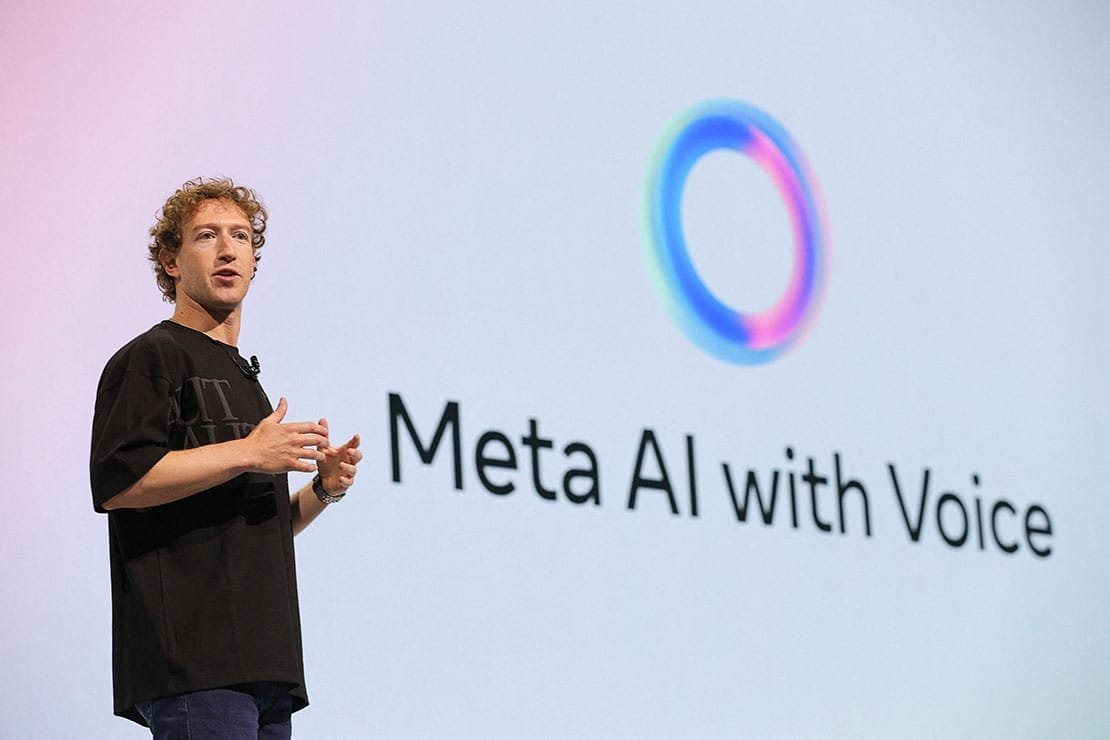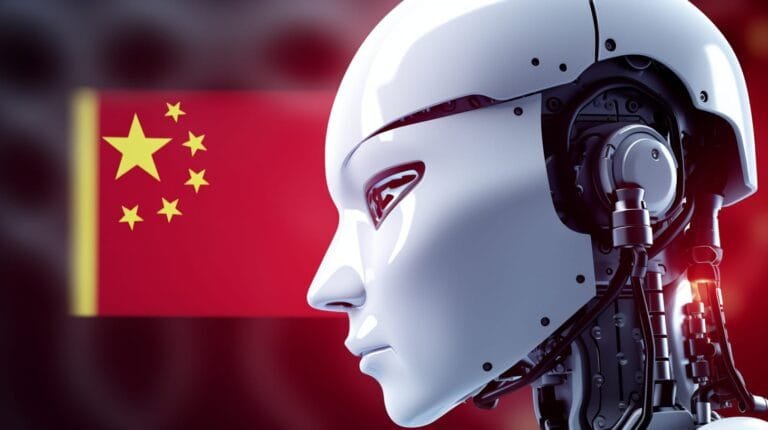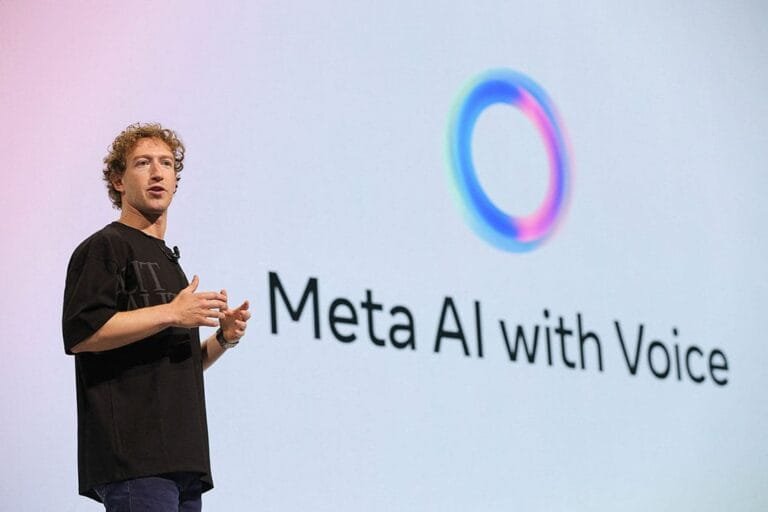
Meta confirms some engineers downloaded porn data but denies it was used for AI training; FTC investigation continues.
What was the Meta controversy all about?
Meta company issued an official statement on November 1, 2025, in which the company clearly stated that some of its engineers had downloaded content from pornographic websites However, this data was not for training AI A company spokesperson said these downloads were for personal use We do not use such content in AI training This statement came after an investigation, and according to American media reports, the Federal Trade Commission (FTC) had been monitoring Meta The investigation revealed that there were unusual downloads from Meta’s data centers, and these included adult content. However, Meta responded immediately, saying that these were the private activities of employees No corporate policy was violated. Many experts raised questions, asking whether Meta was telling the truth AI companies often use large datasets, which include content scraped from the internet Pornography is also a large part of the internet.
The Importance of Data in AI Training
Data is essential for training AI models Imagine, AI is a child It learns by observing the world. Similarly, AI models absorb data from the internet, books, and videos Meta’s Llama model was created through this process However, the problem arises when the data is dirty Pornographic content can contain violence, non-consensual acts, or racial bias If AI learns this, it can give harmful responses For example, models like ChatGPT previously showed bias The reason? The training data was biased Meta also stated that they use filters and check the content, selecting only safe data But critics say that 100% checking is impossible.
There are billions of pages on the internet Manual checking is not possible Therefore, AI tools clean the data. But these tools also make mistakes In this case, Meta proved that the downloads were not related to training They then shared the logs, which showed that the data went to personal devices, not company servers This claim was found to be true in the FTC investigation But restoring trust will take time.
Personal Use vs. Corporate Responsibility
The term “personal use” has fueled controversy.
What do employees do during work hours? Do they use company resources clarified They stated that the downloads occurred from a home network, not from work servers Even so, questions remain Employees at AI companies have extensive access They can download data Is there no control? Meta outlined its policy Employees are warned Violations result in penalties In this case, two employees received notices One received a warning, the other was suspended This incident is also a lesson for larger companies Firms like Google and Microsoft have also been victims of data leaks In 2023, a data leak occurred in Google’s Bard model Users’ private information was leaked.
Meta wants to avoid this mistake, but ethically, the personal and professional boundaries are crucial. What employees view at home is fine, but not at work This damages the company’s image Meta’s share price fell by 2%. Investors are concerned.
The Impact of AI on the Human Brain
Now let’s talk about the impact of AI on the human brain The user mentioned “AI detected for human mind We will interpret this as “Detection and Impact of AI on the Human Mind How does AI think like a human? And how do we detect whether the answer is from AI or a human AI models are based on neural networks They mimic the human brain Like neurons, they form connections During training, they learn patterns But they don’t possess true understanding They only replicate data The human brain, however, is creative It feels emotions AI does not But AI has become so smart that it’s difficult to distinguish Example:
Chatbots converse like friends But at a deeper level, they are predictable However, there are tools for detection Such as GPTZero or Originality.ai These detect AI-generated text How? They check patterns AI tends to keep sentences short. It uses repetition Human sentences are complex Emotions are involved.
Discussing the Meta case:
In Meta’s case, if pornographic data were used, the AI’s behavior would change It would give incorrect answers on sensitive topics Detection tools could catch this But Meta said this didn’t happen Nevertheless, AI has a profound impact on the human brain It’s addictive People spend more time on screens A study (2024, Harvard) says that AI chatbots increase anxiety in 30% of young people Why? Because it replaces genuine human interaction The brain releases dopamine AI is always available, and it also has benefits AI provides therapy Mental health apps like Woebot reduce depression
They offer 24/7 support But detection is crucial The user should know that they are talking to an AI Meta’s Llama model is open-source Anyone can use it But keeping the training data clean is a challenge If contaminated data gets in, the AI can harm the human brain For example, biased AI can spread racism.
The connection between pornography and AI:
Why is pornography controversial in AI training? First, consent. In pornography the performers consent But in data scraping, the website owners do not consent. Second, impact. AIf AI learns pornographic patterns, it can generate sexually explicit content. This is a threat to children, and Meta has denied it. They said “Our policies are strict We block such content But look at the history In 2022, Stable Diffusion (image AI) generated pornography The reason? It was in the training data Experts advise companies to audit their data and hire third-party checkers
The European Union’s AI Act (2024) states that transparency is essential for high-risk AI Meta is complying with this law, yet the debate continues in India as well The IT Ministry issued AI guidelines In 2025, the Data Protection Bill was passed It states that sensitive data should not be misused Meta is a major player in India, with 500 million users on WhatsApp This incident could affect Indian users.
How will AI training improve in the future?
Meta outlined steps for improvement First, upgrading data filters Second, employee monitoring Third, a reporting system Users will be able to file complaints. In the bigger picture, the AI industry is changing OpenAI has adopted a ‘safety first’ approach They conduct red-team testing, meaning hackers try to break the AI Meta will also do this For the human mind, AI detection is crucial New technologies are emerging, such as watermarking – embedding hidden code in AI text This will reveal whether the content is AI-generated Furthermore, a study (MIT, 2025) states that 70% of people cannot distinguish between AI and human-generated content This is a problem Education is necessary Teach AI literacy in schools People need to understand that AI is a tool, not a friend.




